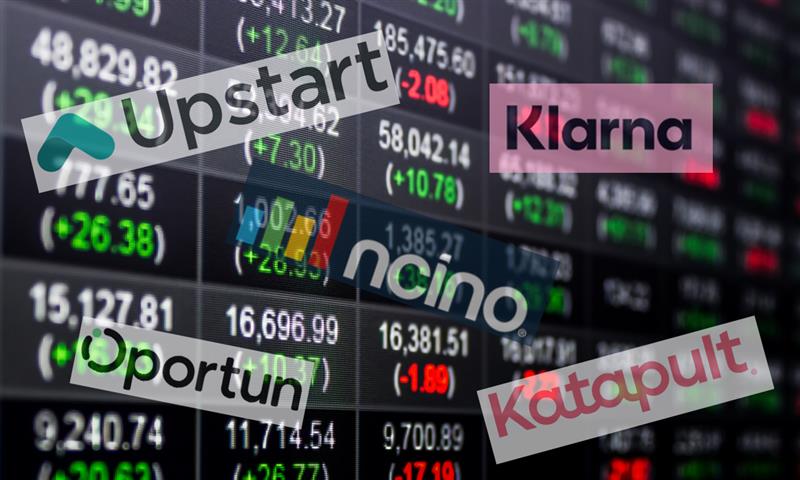A sea of red engulfed the FinTech IPO Index through the past week, as earnings season kicked off with reports from the big banks. A volatile market tied to the on-again trade war with China sent overall markets on a roller coaster ride, and the FinTech IPO Index sank 5.3%.
Katapult gave up a chunk of recent gains on the heels of a credit agreement waiver, diving more than 26%, followed by Chime Financial, which lost 17.4%.
Oportun has added a new $247 million revolving warehouse facility (with Citizens Financial and Community Investment Management) and extended its existing warehouse lines backed by Goldman Sachs and Jefferies by 12 months. These changes boost its total committed warehouse capacity to $1.14 billion (up from $954 million). Shares were down 2.8%.
PAObank and OneConnect Financial Technology joined the Hong Kong Monetary Authority’s second cohort of its generative AI sandbox aimed at bolstering deepfake and identity fraud detection. Their collaboration will involve deploying an “Anti-Fraud Strategy Platform” that layers facial recognition, NFC document checks, device risk signals, and synthetic face detection in real time to verify know-your-customer interactions. OneConnect’s stock lost 0.1%.
nCino shares gave up 5.7%. Baghdadi Capital Group announced it selected nCino’s cloud banking platform to standardize global operations, accelerate client onboarding, and support its growth across multiple financial lines. The deal also marks nCino’s entry into the Spanish market and further cements its push into continental Europe.
Blend shares slipped 0.6%. The company unveiled a new “Intelligent Origination” operating model — an artificial intelligence (AI)-powered framework that embeds intelligence into the core of lending to boost speed, accuracy and oversight. According to the release, by orchestrating data, documents and product rules in context, “the system moves from isolated task automation to continuous, end-to-end execution. … This contextual awareness allows AI to handle more complex decisions autonomously — validating data, identifying discrepancies, and triggering the right next steps in real time.”
Advertisement: Scroll to Continue
BNPL Names Slide
Sezzle said that its buy now, pay later (BNPL) platform can help merchants to draw price-conscious shoppers during the upcoming holiday shopping season. Sezzle said in the release that its platform’s tools for merchants include Express Checkout, aimed at reducing cart abandonment; Sezzle Product Marketplace, to surface products; and the BNPL offering that gives consumers flexibility and enables them to shop more. Sezzle’s stock dropped 8.4%.
PYMNTS reported that Klarna is expanding its partnership with Google to support the new Agent Payments Protocol (AP2), an open standard designed to enable secure, AI-driven payments. The collaboration builds on Klarna’s existing integrations with Google and reflects both companies’ efforts to align around intelligent commerce and automation.
As reported, AP2 establishes a shared framework for how agents can safely initiate and complete transactions on behalf of users. It defines how authorization, identity verification and tracking should function when an AI assistant, chatbot or automated workflow carries out a purchase, ensuring each transaction remains consistent and auditable across platforms. The decline in Klarna’s stock topped 14.4%.
Upstart said in an announcement that it has partnered with Corporate America Family Credit Union (CAFCU) to offer personal loans, HELOCs and auto refinance loans to more consumers.
CAFCU started lending as a partner on the Upstart Referral Network for personal loans in September with plans to expand into HELOCs and auto refinance loans later this year. Personal loan applicants on Upstart.com who meet CAFCU’s credit policies receive tailored offers as they transition into a CAFCU-branded experience to complete the online member application and closing process. Upstart’s stock dropped nearly 9% through the past five trading sessions.






